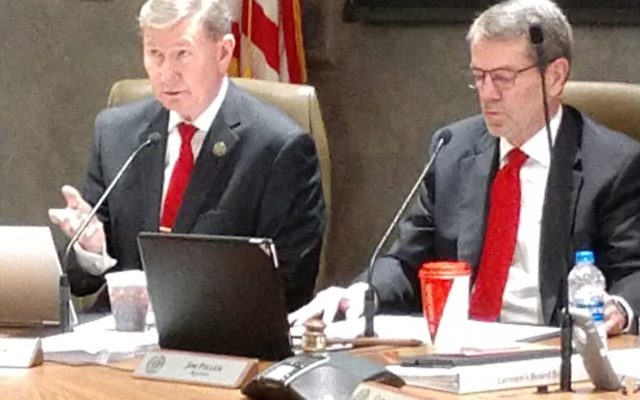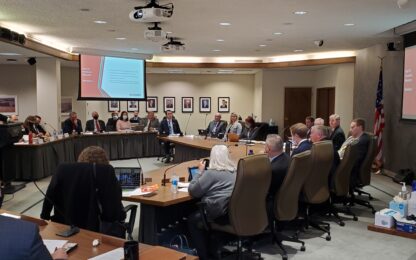Regents To Consider Changes In Investment Strategy

Lincoln, NE (April 1, 2021) Over the past year, students have been appearing regularly during the “Public Comment” periods at each meeting of the University of Nebraska Board of Regents. Many have urged the Regents to end all investments in companies that burn fossil fuels or add greenhouse gases to the earth’s atmosphere. Following more than a year of dialogue, with students and other stakeholders, the Regents are set to amend the policy that guides its endowment investment decisions, a step NU System President Ted Carter said today is key to the university’s vision for sustainability and responsible stewardship of its resources.
Under a change to go before the Board at its April 9 meeting, regents would be able to be able to consider environmental, social and governance (“ESG”) criteria when investing university-controlled endowment holdings. Current Board policy dictates that investment decisions be driven primarily by the goal of maximizing returns.
The amendment, Carter said, would create valuable flexibility for the Board in incorporating criteria increasingly used in the business world without limiting regents’ decisions as they seeks to manage the endowment for the long-term benefit of students, faculty and staff. The change also reflects the growing importance of sustainability issues among students, in the community and nationally.
Carter credited students for their leadership throughout an ongoing dialogue about sustainability across the NU system.
“Our students are passionate champions for sustainability, and we’re listening,” Carter said. “The chancellors and I share that commitment to being good stewards of our natural resources and we want to align our investments accordingly. We also believe our investment strategy should reflect the common-sense values of Nebraskans.
“This policy change is a responsible and positive step forward – a reflection of current priorities that will keep our regents’ options open as they consider how best to invest valuable endowment funds.”
Students in particular have advocated for the university to divest its endowment from the fossil fuel industry, with a focus on the Carbon Underground 200, a list of the top companies ranked by emissions.
Carter noted that the University of Nebraska has no direct investments in fossil fuel companies. Of the $370 million investment portfolio controlled by the Board of Regents, known as Fund N, the university’s total exposure to energy companies represents less than 2 percent, about $7.3 million.
That’s down from 6.5 percent a year ago. The university’s exposure to CU200 companies is estimated to be slightly more than 1 percent.
While the university’s fossil fuel exposure is declining already, Carter said, the Board’s pending policy change represents a key step toward NU’s ultimate vision that by 2025, the university will have no Fund N investments in energy companies that do not have a meaningful clean energy plan in place. That means the university may continue to invest in companies that may have a high carbon footprint now, but are working to become more sustainable in the future.
In addition, in response to students’ requests for greater transparency around its investments, the university will publish quarterly reports of Fund N holdings, beginning this month.
Carter credited the NU chancellors for robust sustainability plans already in place across the campuses, noting that the university’s endowment investment practices are one component of its overall sustainability efforts. Notably, university faculty are world leaders in research in agriculture and natural resources, work that has a significant impact on individual and economic health in Nebraska and around the world.
Regent Jim Pillen of Columbus, chairman of the Board’s Business and Finance Committee, praised the collaborative work over the past 15 months that led to the updates coming before the Board.
“These are complex issues and it’s important that we take everyone’s perspective into account,” Pillen said. “I’ve been so impressed with our students, who have been strong and thoughtful leaders throughout this process. As President Carter has said, doing nothing is simply not an option. I think Nebraskans can feel good about where we’re at.”
Biden’s Next Big Push: Massive Infrastructure Plan, Proposed Tax Hikes To Pay For It






